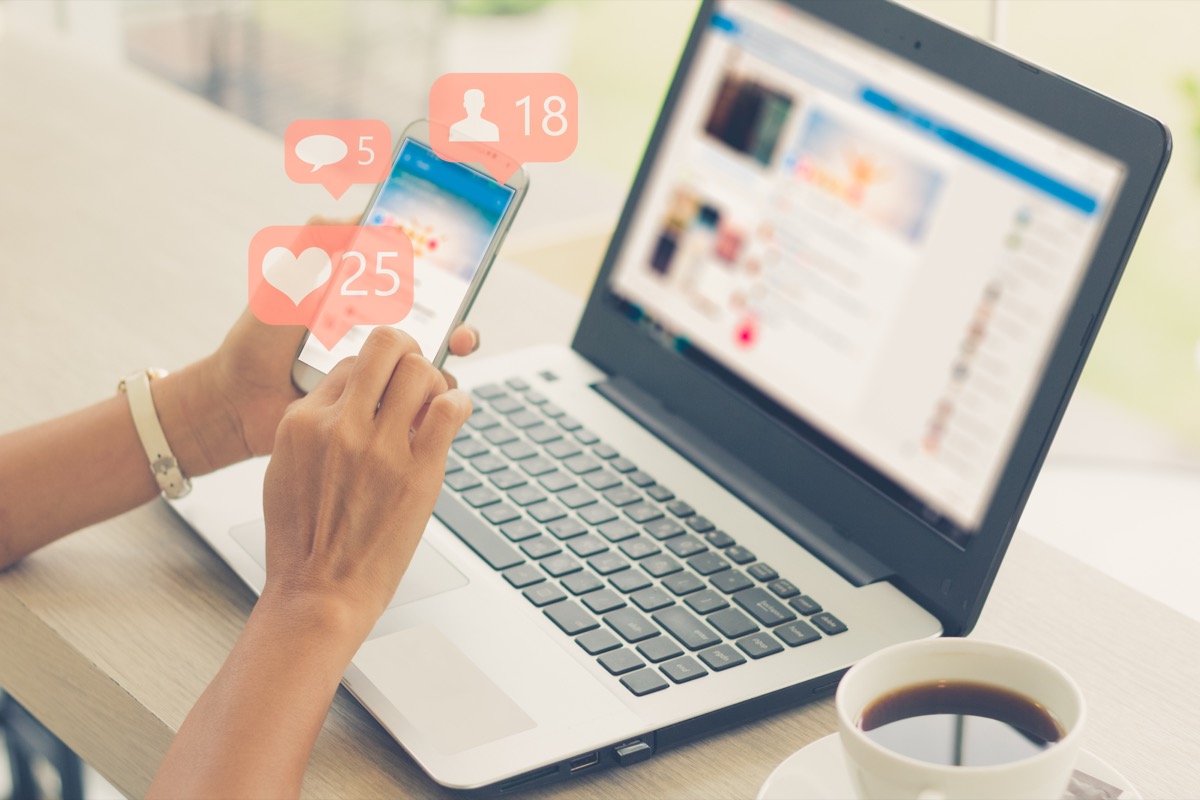This Is the Biggest Problem With "Liking" Articles Online, Study Finds
Ironically, hitting that "like" button may be telling the world a lot more than you think.
There's a good chance your relationship with social media is a little fraught these days. Most of scroll through our feeds, give a post a quick glance, and offer one of the few "reactions" an app affords us. On Twitter, Facebook, and Instagram, we may see an article headline that speaks to us and give the post a "like," but it turns out, that "thumbs up" may actually be causing some issues. According to a recent study out of Ohio State University, there's a big problem with the "like" button. In reality, using it only means one thing: You spent less time reading the article you "liked."
Researchers at Ohio State University conducted an experiment involving 235 college students who were shown four different versions of a news site covering the controversial topics of abortion, welfare benefits, gun control, and affirmative action. In two scenarios, researchers announced via a banner ad that "voting" on the topics was allowed, while on the other two, it was advertised that voting was closed.
Results showed that subjects spent up to a minute and a half reading articles that agreed with their views as opposed to spending less than a minute reading those that opposed them. But they also found that subjects spent 12 seconds less reading each article when they learned they could vote—and they even voted on 12 percent of articles they never read at all.

"When people are voting whether they like or dislike an article, they're expressing themselves," Daniel Sude, PhD, lead author of the study, said in a statement. "They are focused on their own thoughts and less on the content in the article."
He added: "It is like the old phrase, 'If you're talking, you're not listening.' People were talking back to the articles without listening to what they had to say."
RELATED: For more up-to-date information, sign up for our daily newsletter.
The Ohio State study is not the first of its kind to bring our complex relationship with the "like" button into question. There's mounting evidence that our mental health can be greatly affected by the number of upvotes our posts get—even from the creators of these platforms themselves. In 2019, Twitter CEO Jack Dorsey said he was "not a fan of the heart-shaped 'like' button and that Twitter would be getting rid of it 'soon,'" The Daily Mail reported. (As any Twitter user can tell you though, it still exists today.) The statement came in the wake of a study that called for an "ethical overhaul" of social media after it was found that "likes" could ironically cause depression in social media users.
Still, some researchers claim that there is an immediate solution to the biggest problem with "liking" articles online. "Don't just click the 'like' button. Read the article and leave thoughtful comments that are more than just a positive or negative rating," Sude said. "Say why you liked or disliked the article. The way we express ourselves is important and can influence the way we think about an issue." And for more on how to communicate effectively in the digital age, check out People Don't Trust You If You Text With This Punctuation Mark, Study Says.






















